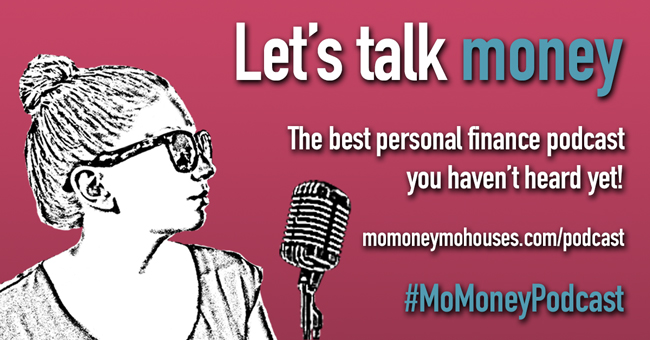There are two reasons people have issues managing their money:
1. Ignorance (meaning, you don’t know enough about money management and personal finance to make solid decisions)
2. Self-control issues (we live in a culture where consumerism is rampant and we are obsessed with having everything and having it now).
There are also a slew of issues that come from things like the wage gap, pay inequality, poverty, and various other social issues that I’m not going to get into here (chances are, if you’re reading this, you earn a wage).
But I think that with enough knowledge, the second issue becomes easier to manage. So, how do you learn about money?
Nobody comes out of the womb crunching numbers, investing their savings and calculating their net worth. We all have to learn from somewhere, and it’s clear that that North American school system isn’t that place.
And with an emerging cultural trend of self-directed online education through online courses, articles, eBooks, MOOCs, and countless other platforms, we’re taking it in our own hands.
Here are a few ways to learn about personal finance on your own so you can up your money game and start making awesome decisions about your cash.
Podcasts
I have one of my own, and I listen to them constantly. When I’m driving, working out, walking anywhere, or doing anything mindless, I’m listening to a podcast.
I find audio learning the perfect way to learn something at my convenience.
I suggest my friend Jessica’s podcast, from Mo Money Mo Houses. She just launched and her episodes so far are great. Jess has the perfect radio voice and you always go away having learned something.
It’s a millennial focused podcast with interviews new guests each week about their personal money story. Topics include getting out of debt, doing a shopping ban, trying to overcome their inner shopaholic, quitting their 9 to 5 to become a solopreneur, starting a side hustle, money and relationships and more.
If you enjoy her podcast I highly recommend you leave a review here (every review helps – take it from a podcaster!) and subscribe to Jess’s show.
Jess is also hosting a giveaway to celebrate the launch of her podcast for:
- One $100 Amazon gift card
- One $50 Amazon gift card
- One “Mo’ Money Mo’ Houses” bag from Bow & Drape (valued at $75 and totally unique!). Here’s a photo of what it looks like.
You can (and should!) enter here:
Books
I don’t think books will ever go out of style.
Think about it – when you think of learning anything, what do you think of? For me, it’s picking up a book.
There are some amazing books out there about money, and you’d be surprised as to how much you’ll learn from each one – even if you think you already know everything about personal finance. I’m a blogger on the topic and I still learn something from every finance book I read.
Some great books are:
- Anything from Gail Vaz Oxlade
- Rich Dad, Poor Dad
- The Wealthy Barber
- Dave Ramsey’s Complete Guide to Money: The Handbook of Financial Peace University
- MONEY Master the Game: 7 Simple Steps to Financial Freedom
Everyone will have a different style, so some of these books might not jive well with you, but you won’t know until you pick them up.
If you find yourself solid on one financial topic (ie budgeting) but lacking knowledge in another (ie investing), there are plenty of books about each topic so don’t worry about running out.
Blogs and Online Publications
I’m obviously a huge fan of blogs.
Hopefully you are too (otherwise you might be hate reading this =) ). And I’ve learned a crazy amount of information about money from blogs and online magazines (like FastCompany).
There are hundreds (if not thousands) of personal finance blogs out there, touching on every topic from investing to home ownership, to saving and budgeting and more, so it’s difficult to make any recommendations, but spend some time on a handful of blogs getting to know the author and the style.
Every once in awhile you’ll land on the perfect blogger/reader match and you’ll be hooked.
Courses and Products
Big, commercial courses and products are sometimes too faceless to be effective when it comes to learning about personal finance – after all, the word personal is used in there.
So once you find your favorite blogger (or two, or three) or authority on money who you trust, see if they have any products or courses you can sign up for to teach you a bit more about personal finance.
There are a ton out there and they can be mind-blowingly useful.
There’s no need to wallow in ignorance about money. We all need to start learning somewhere, so start where you are – and with what you have. Podcasts, books, blogs and courses are some of the best places to start.

